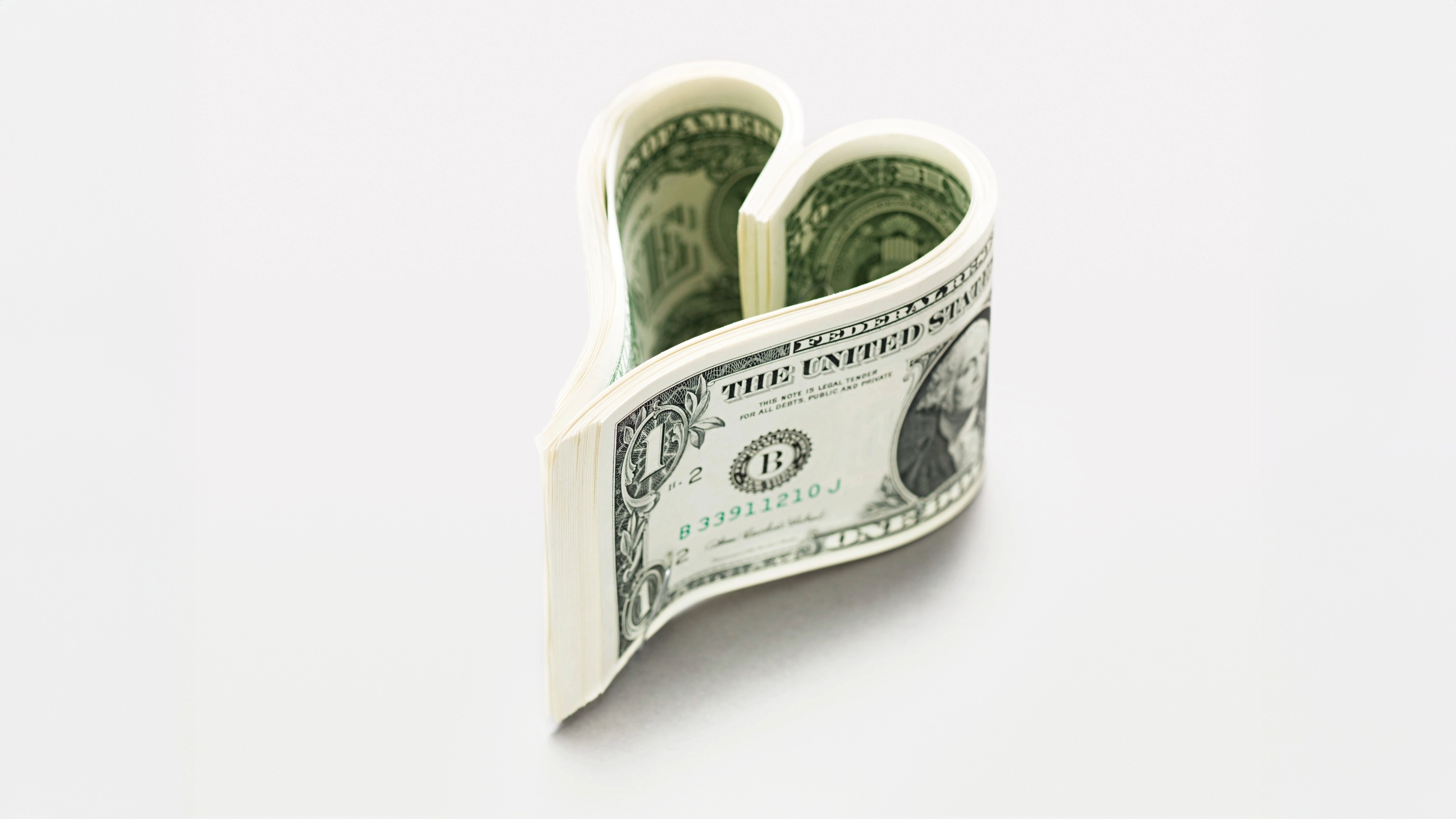Kiplinger Interest Rates Outlook: Federal Reserve Will Pause Rate Cuts for a While
The Fed suggests that it is not likely to cut rates further unless the jobs market weakens more.

Profit and prosper with the best of Kiplinger's advice on investing, taxes, retirement, personal finance and much more. Delivered daily. Enter your email in the box and click Sign Me Up.
You are now subscribed
Your newsletter sign-up was successful
Want to add more newsletters?

Delivered daily
Kiplinger Today
Profit and prosper with the best of Kiplinger's advice on investing, taxes, retirement, personal finance and much more delivered daily. Smart money moves start here.

Sent five days a week
Kiplinger A Step Ahead
Get practical help to make better financial decisions in your everyday life, from spending to savings on top deals.

Delivered daily
Kiplinger Closing Bell
Get today's biggest financial and investing headlines delivered to your inbox every day the U.S. stock market is open.

Sent twice a week
Kiplinger Adviser Intel
Financial pros across the country share best practices and fresh tactics to preserve and grow your wealth.

Delivered weekly
Kiplinger Tax Tips
Trim your federal and state tax bills with practical tax-planning and tax-cutting strategies.

Sent twice a week
Kiplinger Retirement Tips
Your twice-a-week guide to planning and enjoying a financially secure and richly rewarding retirement

Sent bimonthly.
Kiplinger Adviser Angle
Insights for advisers, wealth managers and other financial professionals.

Sent twice a week
Kiplinger Investing Weekly
Your twice-a-week roundup of promising stocks, funds, companies and industries you should consider, ones you should avoid, and why.

Sent weekly for six weeks
Kiplinger Invest for Retirement
Your step-by-step six-part series on how to invest for retirement, from devising a successful strategy to exactly which investments to choose.
Kiplinger’s Economic Outlooks are written by the staff of our weekly Kiplinger Letter and are unavailable elsewhere. Click here for a free issue of The Kiplinger Letter or to subscribe for the latest trends and forecasts from our highly experienced Kiplinger Letter team.
The Federal Reserve kept short-term interest rates unchanged at 3.5% to 3.75% at its policy meeting on January 28. Chair Jay Powell cited solid recent economic growth and the higher-than-desired inflation rate as reasons for waiting and watching before making any further cuts. Also, the urgency to cut is less now, after the dip in the unemployment rate in December signaled that while the labor market remains subdued, it is stabilizing and not worsening.
We expect that the Fed will continue to stand pat at its policy meetings this spring, unless the labor market takes a turn for the worse. While Fed governors Waller and Miran voted to further cut rates at the January 28 meeting, there were 10 votes in favor of waiting. A new Fed Chair will take over from Powell in May and could very well enact a cut at the June 17 policy meeting, but if economic growth remains solid, the other committee members will likely resist more than a token cut or two this year. However, a downward revision of last year’s job gains is expected to be released as part of the January jobs report on February 6, and if that combines with a poor January report, that could up the odds of a rate cut at the next Fed policy meeting on March 18.
From just $107.88 $24.99 for Kiplinger Personal Finance
Become a smarter, better informed investor. Subscribe from just $107.88 $24.99, plus get up to 4 Special Issues

Sign up for Kiplinger’s Free Newsletters
Profit and prosper with the best of expert advice on investing, taxes, retirement, personal finance and more - straight to your e-mail.
Profit and prosper with the best of expert advice - straight to your e-mail.
The 10-year Treasury yield is still hovering around 4.2%. Right now, downward pressures from fears of an economic downturn because of a weak labor market are being balanced by upward pressures from continued economic and productivity growth, and an inflation rate that is still a bit too high at 2.7%. The 10-year yield is often used as the benchmark for setting mortgage and auto loan rates.
The bond market’s yield curve will become fully upward sloping sometime this year, for the first time since 2021. Bond investors’ concern that an economic slowdown looms is shown by the fact that current one- to three-year Treasury notes have lower yields than short-term Treasury bills that mature in a few months. As the uncertainties surrounding the path of the economy gradually get resolved, fears will diminish and medium-term rates are likely to pick up a bit. The long end of the yield curve is likely to stay elevated.
Mortgage rates have dipped as the 10-year Treasury’s yield has stayed around 4%. 30-year fixed-rate mortgages are currently around 6.1%. 15-year loans are at 5.5% for borrowers with good credit. If the economy weakens, then rates should decline, but odds are that rates at the end of 2026 will be close to where they are today.
Top-rated corporate bond yields have also been following Treasury yields. AAA-rated long-term corporate bonds are yielding 4.7%, BBB-rated bonds are at 5.0% and CCC-rated bonds are at 12.0%. CCC-rated bond rates tend to rise when the risk of recession rises, and fall when either the economy strengthens or the Fed cuts rates, which eases financing costs for businesses that are heavily indebted.
Related Content
Profit and prosper with the best of Kiplinger's advice on investing, taxes, retirement, personal finance and much more. Delivered daily. Enter your email in the box and click Sign Me Up.

David is both staff economist and reporter for The Kiplinger Letter, overseeing Kiplinger forecasts for the U.S. and world economies. Previously, he was senior principal economist in the Center for Forecasting and Modeling at IHS/GlobalInsight, and an economist in the Chief Economist's Office of the U.S. Department of Commerce. David has co-written weekly reports on economic conditions since 1992, and has forecasted GDP and its components since 1995, beating the Blue Chip Indicators forecasts two-thirds of the time. David is a Certified Business Economist as recognized by the National Association for Business Economics. He has two master's degrees and is ABD in economics from the University of North Carolina at Chapel Hill.
-
 What to Expect from the January CPI Report
What to Expect from the January CPI ReportThe January CPI report will be released Friday morning. Here's what economists expect the inflation data to show.
-
 How to Open Your Kid's $1,000 Trump Account
How to Open Your Kid's $1,000 Trump AccountTax Breaks Filing income taxes in 2026? You won't want to miss Form 4547 to claim a $1,000 Trump Account for your child.
-
 In Arkansas and Illinois, Groceries Just Got Cheaper, But Not By Much
In Arkansas and Illinois, Groceries Just Got Cheaper, But Not By MuchFood Prices Arkansas and Illinois are the most recent states to repeal sales tax on groceries. Will it really help shoppers with their food bills?
-
 What to Expect from the January CPI Report
What to Expect from the January CPI ReportThe January CPI report will be released Friday morning. Here's what economists expect the inflation data to show.
-
 How to Budget as a Couple Without Fighting About Money
How to Budget as a Couple Without Fighting About MoneyThese tips will help you get on the same page to achieve your financial goals, with minimal drama.
-
 These Thoughtful Retirement Planning Steps Help Protect the Life You Want in Retirement
These Thoughtful Retirement Planning Steps Help Protect the Life You Want in RetirementThis kind of planning focuses on the intentional design of your estate, philanthropy and long-term care protection.
-
 Fixed Indexed Annuities and Bonds: The Perfect Match as Interest Rates Inch Lower?
Fixed Indexed Annuities and Bonds: The Perfect Match as Interest Rates Inch Lower?The prospect of more interest rate cuts has investors wondering how to enhance the bond portion of their portfolio. A fixed indexed annuity could be the answer.
-
 'Fee-Only' and 'Fiduciary' Are Not the Same: A Financial Pro Sets the Record Straight
'Fee-Only' and 'Fiduciary' Are Not the Same: A Financial Pro Sets the Record StraightThe terms fiduciary and fee-only are not interchangeable. Knowing the difference ensures investors get the advice and the consumer protection they need.
-
 Strong Jobs Report Leaves Markets Flat: Stock Market Today
Strong Jobs Report Leaves Markets Flat: Stock Market TodayInvestors, traders and speculators are taking time to weigh the latest labor market data against their hopes for lower interest rates.
-
 Is There a Downside to Switching Your Insurance Frequently?
Is There a Downside to Switching Your Insurance Frequently?You keep finding lower rates every time you shop for insurance. Is there any reason not to take the better deal?
-
 Job Growth Sizzled to Start the Year. Here's Why It's Unlikely to Impact Interest Rates
Job Growth Sizzled to Start the Year. Here's Why It's Unlikely to Impact Interest RatesThe January jobs report came in much stronger than expected and the unemployment rate ticked lower to start 2026, easing worries about a slowing labor market.